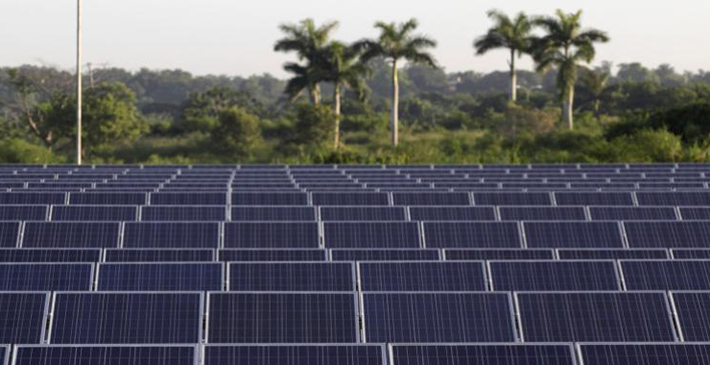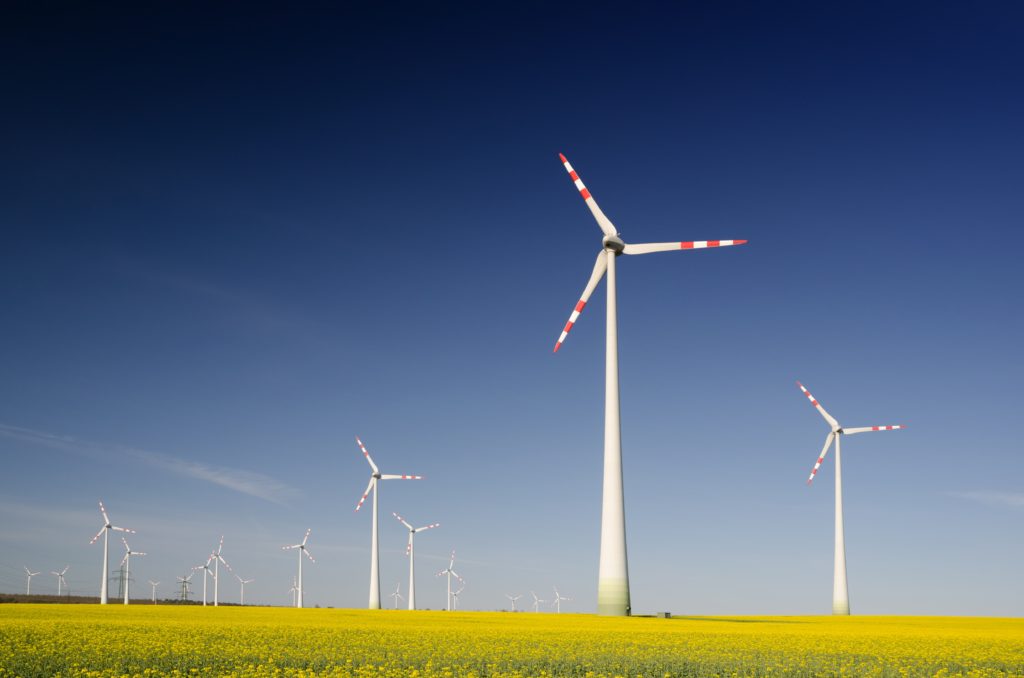
A new path for renewable energy sources in Cuba
HAVANA – Natural persons in Cuba may acquire equipment that uses renewable energy sources (FRE), and for that purpose access bank credits, as well as sell the surplus energy produced to the State, as of the publication of Decree-Law No. 345, signed into law since March 2017 by the now First Secretary of the Communist Party Raúl Castro.
Since December of that year, a press release from the Cuban News Agency reported the importance attributed to this Decree-Law by the Cuban non-governmental organization CUBASOLAR. However, it was not published in the Official Gazette of Cuba until November 28 of this year.
The new law’s objective, as stated in the document, is to regulate the development of renewable sources and the efficient use of energy. To this end, large-scale adaptations will be necessary in the National Electrical System, which include the increase in the efficiency of burning Cuban crude oil and other fuels, bringing its generation closer to consumption, and the simultaneous generation of electricity and heat.
Priorities included in the production plan are the installation of bioelectric plants in the sugar industry, the assembly of wind farms, the location of photovoltaic panels and solar heaters, and the use of agricultural crop residues and factory wastes, from both livestock and urban areas.
The State sector
The Ministry of Energy and Mines will be responsible for promoting energy production by consumers, including the residential sector. On the other hand, it is stipulated that the Electrical Union “buys all the electric energy generated from renewable sources of energy, produced by independent producers, provided that it complies with the established technical standards.”
Companies must now include the necessary investment plan for the installation of equipment and means that use renewable sources, or use energy more efficiently, adopting as a fundamental criterion the cost-benefit relationship for the country.
In addition, a priority will be placed on the development of scientific investment and innovation, an area with surpluses in state-owned companies.

This decree declares as a “strategic objective” of the national industry “the production of equipment and spare parts for the development of renewable energy sources,” as well as architectural designs that contribute to energy savings. Regarding equipment imported or produced in the country, it is the responsibility of the National Office for the Control of Rational Energy Use (ONURE) to guarantee its energy efficiency.
Regarding foreign investments, tax benefits granted by the law are regulated on a gradually ascending incentive scale. Legal persons with import permits in the country that prioritize goods required for the use of FRE, will also enjoy similar benefits, in addition to exemptions and tariff bonuses that could be granted by the Ministry of Finance and Prices.
Other regulations
By instruction of the Decree-Law, the Central Bank of Cuba will grant credits of up to 100 percent in Cuban pesos to Cuban natural persons for the acquisition for two types of equipment: solar water heaters and photovoltaic solar systems.
Regarding the commercialization of this equipment and its spare parts to the population (the retail market), the Ministry of Internal Commerce provided in Resolution No. 141 for it to be carried out at the points of sale selected by the Corporation Copextel, SA, the Logistics Business Group and currency collection stores.
Copextel, S.A. will also be in charge of a group of actions focused on coordinating contracts, quality requirements of suppliers, marketing of equipment, inventory control, marketing technical installations, assembly, warranty and after-sales services, among others.
The Ministry of Energy and Mines, through Resolution No. 123, has established that “the Electrical Union installs the equipment of measurements for the registration of energy delivered to the National Electric System by independent producers from renewable sources,” since the energy meters currently operating in residential sectors are unidirectional, and only work to measure the electrical energy flowing from the network to the user, and do not measure what the users would generate towards the national network.
Another provision indicates that state companies and private businesses engaged in tourism must carry out the corresponding technical analyzes and projections to install in their spaces, according to their feasibility, technologies such as the aforementioned solar heaters and photovoltaic panels, in addition of solar pumps, air conditioning equipment by absorption or with the use of cold water from the seabed, among others that take advantage of the FRE.
In addition, it stipulates that the state business system of the transportation sector, together with the AZCUBA Sugar Group, the Cuba Petroleum Union and the chains of service centers “elaborate a program for the possible gradual introduction of the use of alcohol-gasoline mixtures in a proportion that does not imply the change of motors.”
The current situation has been defined by the government as temporary because of the global oil crisis and its repercussions on the lives of Cubans. Adding that the promotion of FRE and the diversification of energy sources is an intelligent way to go, despite the delay.

